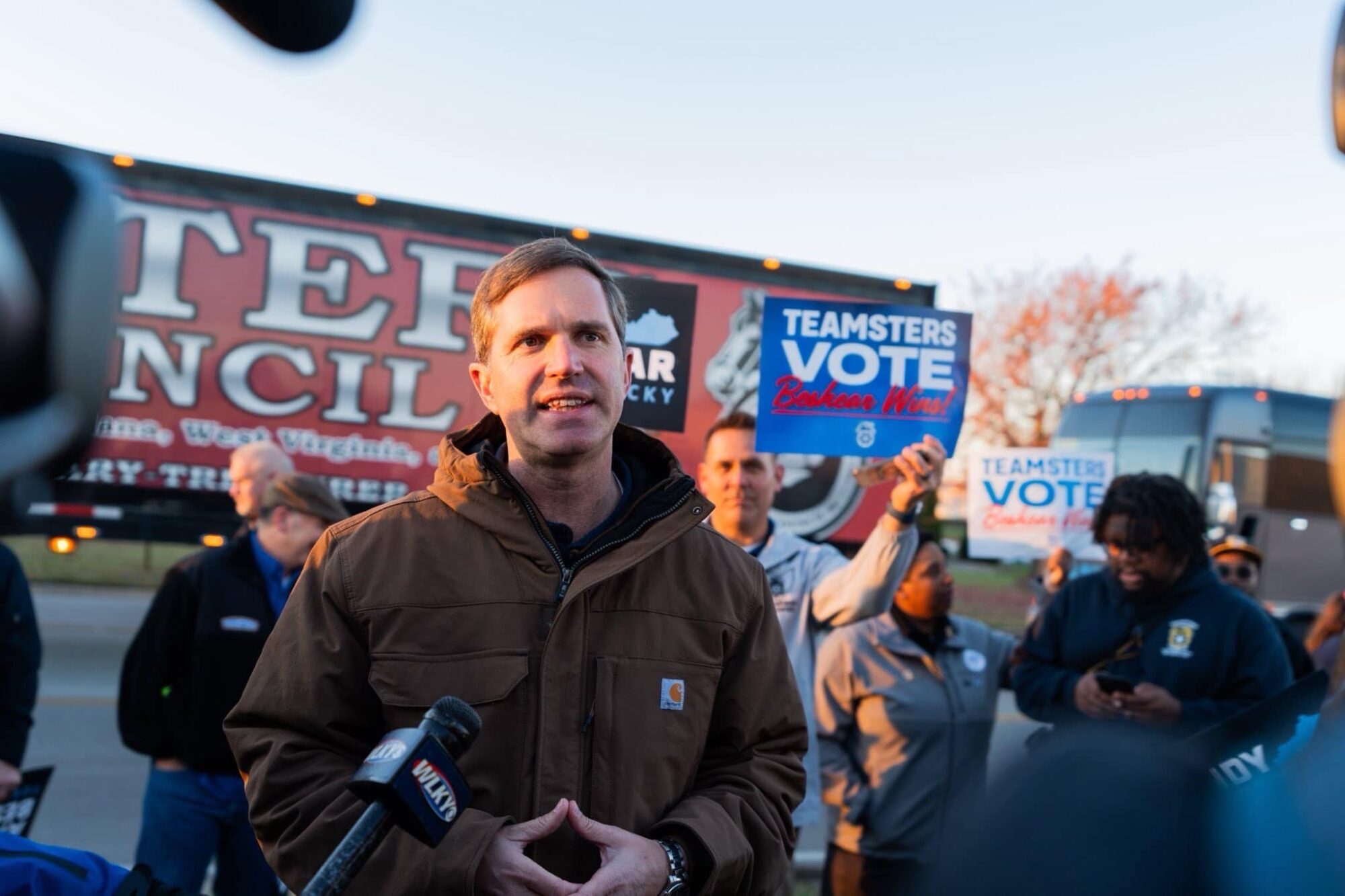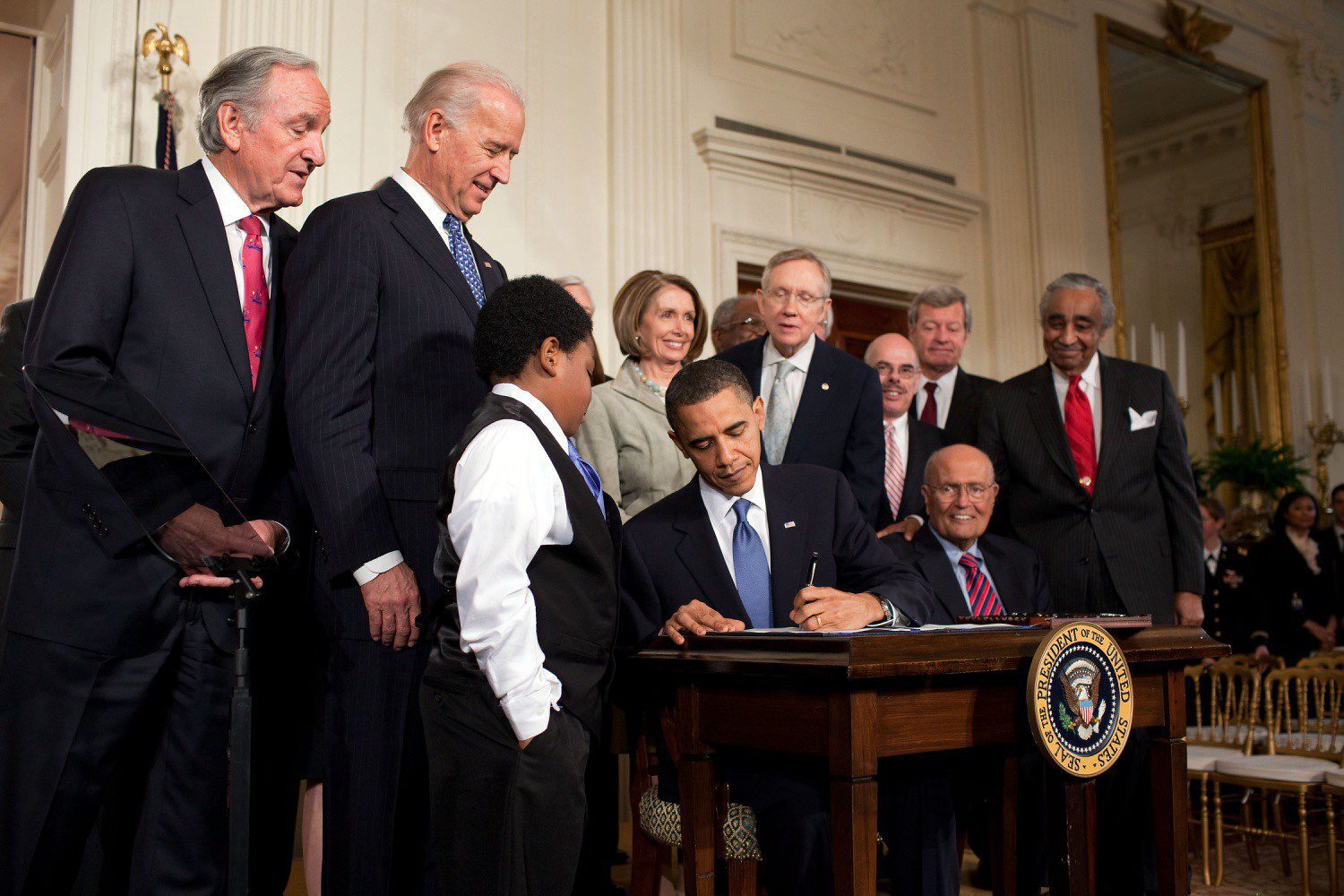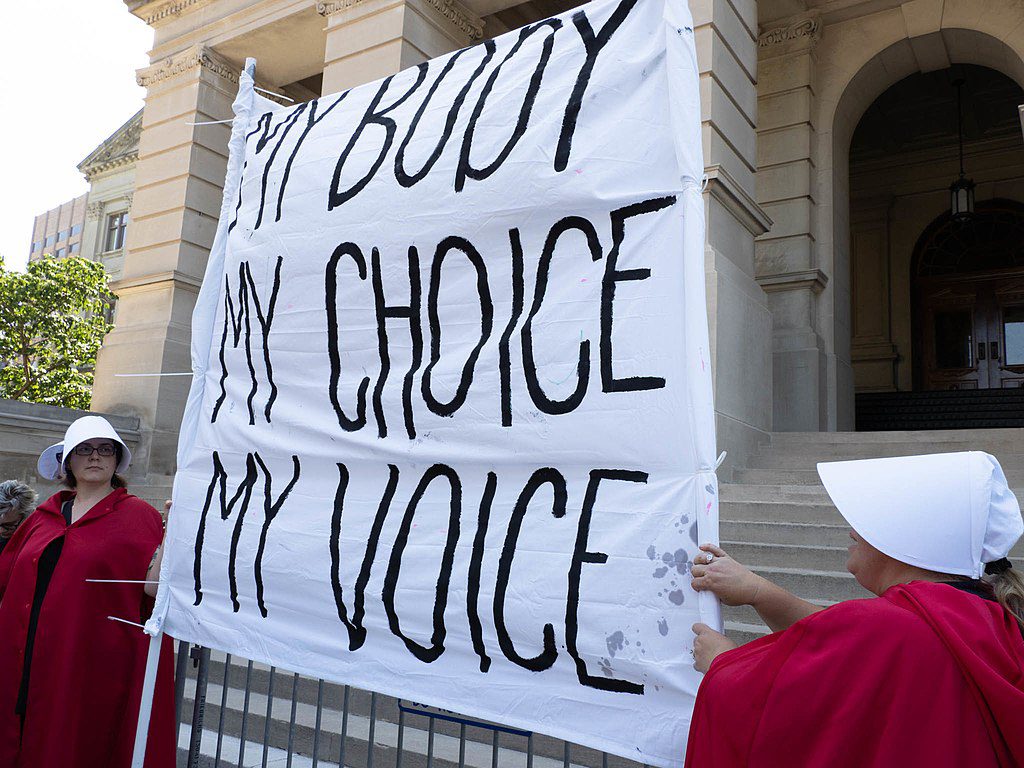Arizona Will Elect County Prosecutors in Shadow of Abortion Ban
The recent ruling by the state supreme court has heightened tensions in the county attorney race in populous Maricopa County, with one candidate pledging to not prosecute abortions.
Daniel Nichanian | April 23, 2024
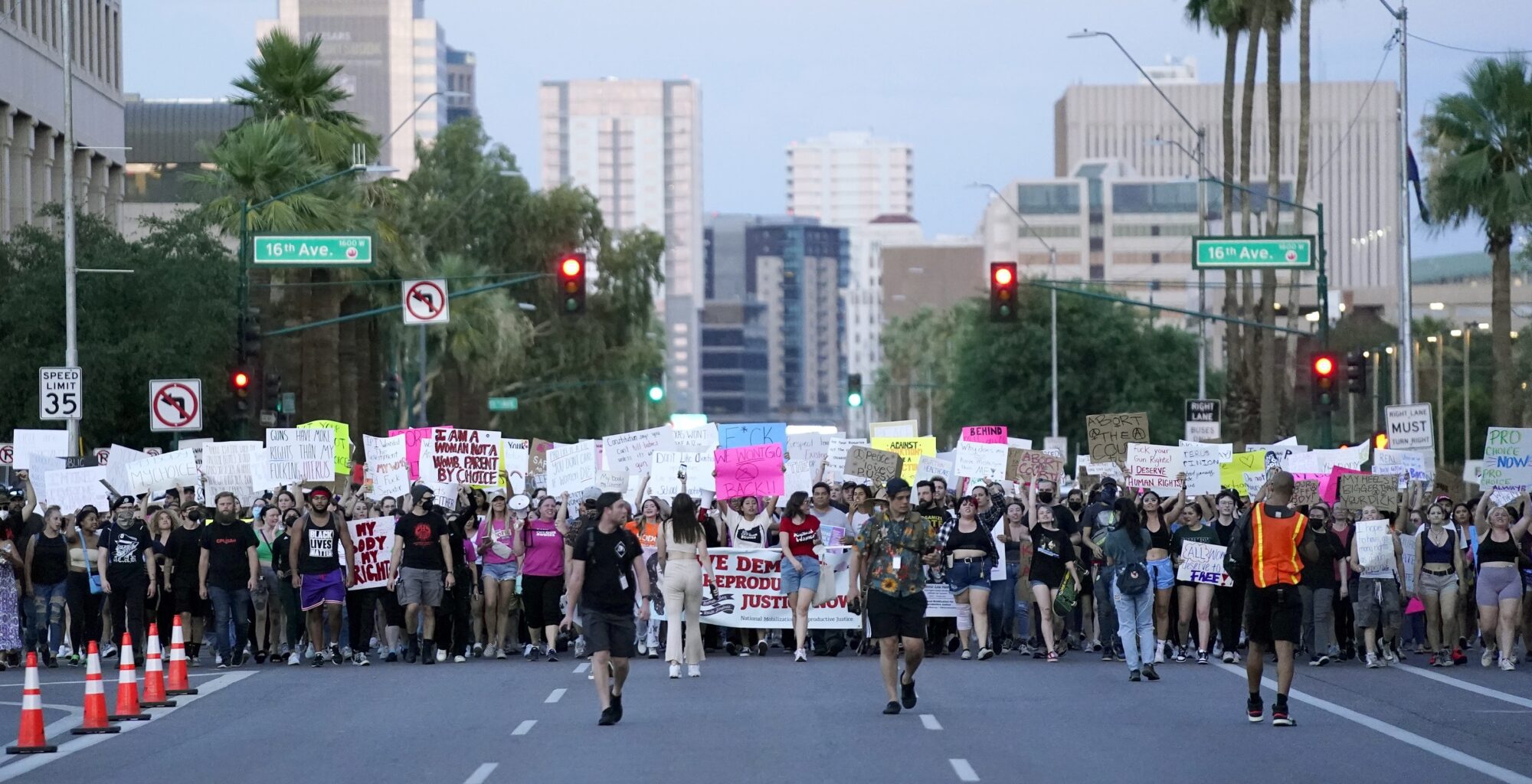

Ever since the Arizona Supreme Court upheld a near-total abortion ban this month, pro-choice advocates have rushed to reverse it. They’ve pushed the GOP-run legislature to repeal the law, to no avail so far. They’ve defended the Democratic governor’s order blocking enforcement of the ban from legal pushback. And now they’re close to placing a constitutional amendment protecting abortion on the November ballot.
If these statewide solutions fail, though, they’re at least eying Arizona’s local prosecutors as the backstop to an outcome they dread: the prospect of people facing criminal charges—and prison terms—over abortions.
“The least our county attorneys can do is commit that they would not prosecute those cases,” said State Representative Analise Ortiz, a Democrat whose district covers parts of Maricopa County. “They absolutely should do that to bring relief to the millions of people who are scared by this decision.”
Whether such a backstop materializes in Maricopa County—a giant jurisdiction home to more than four million residents in Phoenix and its surrounding areas—is going to come down to November’s prosecutor race.
Maricopa County Attorney Rachel Mitchell, a Republican who is up for reelection this year, reacted to the ruling with a statement vowing that women would not be “prosecuted for receiving an abortion,” and especially calls out that she would not prosecute abortions that stem from rape, incest, or molestation. The statement did not, however, address whether she would prosecute doctors who provide abortions. Just days prior, Mitchell had said she’d enforce Arizona’s abortion law “whatever that law is.” She has also denounced as unlawful a gubernatorial order barring county attorneys like herself from prosecuting abortion.
Mitchell’s only Democratic challenger, Tamika Wooten, promises she won’t pursue such prosecutions if she becomes county attorney.
“I will not prosecute a woman for her personal health care decisions, nor will I prosecute the medical provider who performs that,” Wooten, a former local prosecutor and defense attorney, told Bolts. “That is a very serious and personal decision that a person must have with themselves and with their health care provider, and it’s not my business.”
Mitchell’s office on Monday declined to answer questions from Bolts about whether she would prosecute doctors that provide abortion, only referring Bolts to her April 9 statement that does not mention medical providers. “That statement, in its entirety, is the information being provided at this time,” said a spokesperson for the office.
Arizona’s revived ban, which dates back to 1864, mandates two to five years in prison for doctors who provide an abortion except when it’s to save a patient’s life.
In 2022, the GOP passed a separate law banning abortions after 15 weeks; that law also makes it a felony for doctors to violate those restrictions.
Even if Arizona repeals the 1864 law, that would still leave in place this 15-week ban and its share of criminal penalties.
Wooten criticized Mitchell for not ruling out charges against medical professionals. “If you say you’re not going to prosecute the woman but you’re not quite sure if you’re going to prosecute the medical professional, licensed medical professionals are going to be wary of that,” Wooten said. “That’s gonna force a woman to go to a back alley. Now we’re subjecting women to all kinds of unsafe, unsanitary procedures… because our licensed professionals are afraid that they’re going to be prosecuted.”
Wooten added, “We need to make sure that the people who are licensed and able to perform these can do it confidently without fearing felony prosecution or prison.”
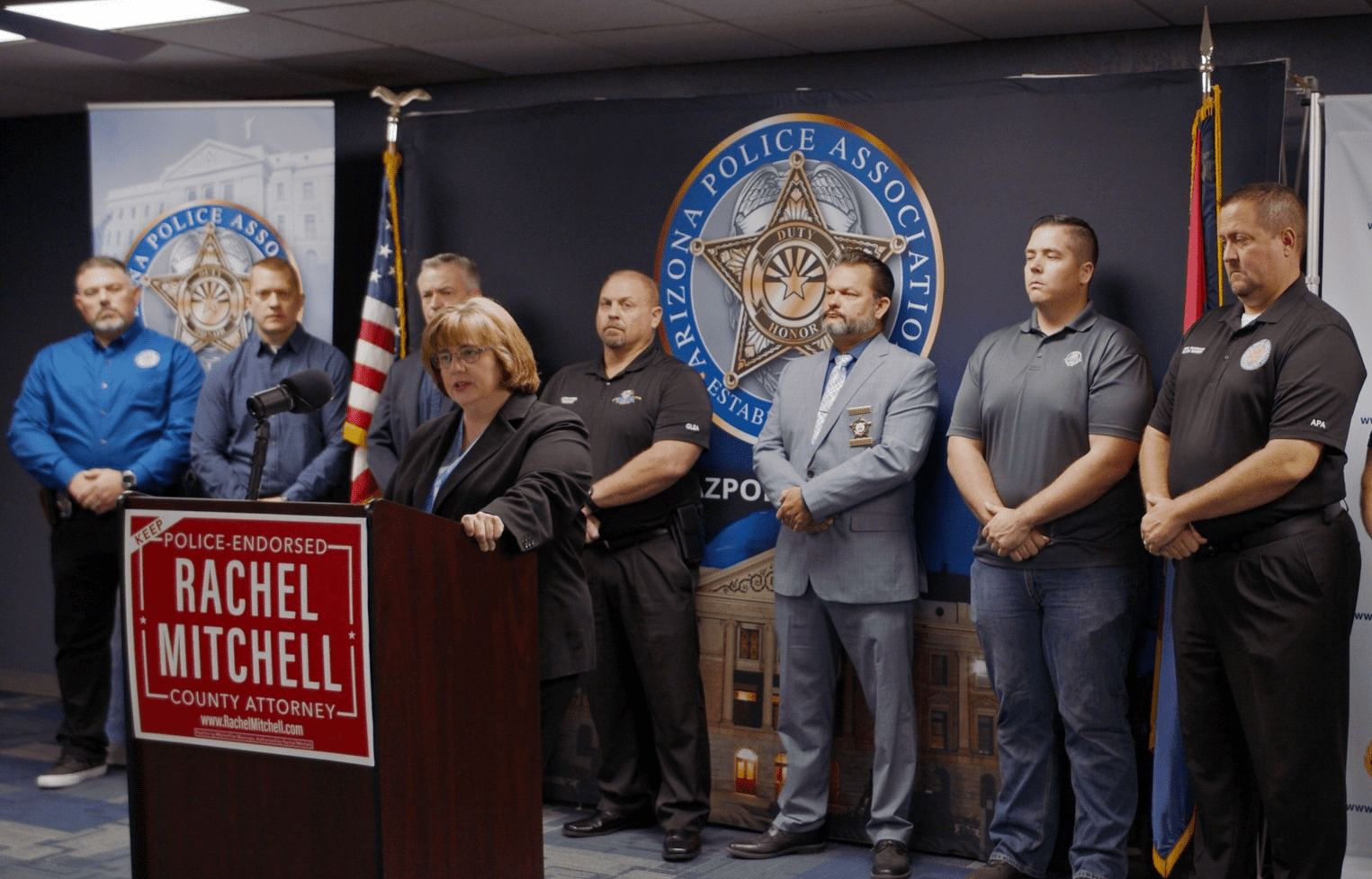

In the GOP primary in August, Mitchell first faces a rematch against Gina Godbehere, a conservative who used to work as a prosecutor in the county attorney’s office; Godbehere did not reply to Bolts but has echoed Mitchell’s position on abortion in the past.
Arizona’s 14 other counties also elect their chief prosecutor this year, but a statewide analysis by Bolts found that most of these races aren’t even contested, and among those that are, Maricopa County is unique in featuring a stark contrast on the issue of criminalizing abortion. It’s the only Arizona county where there’ll be at least one candidate on the ballot this year pledging to not prosecute abortion, and at least one candidate who hasn’t made that assurance.
This single race, though, will have outsized resonance, since it’s playing out in the county that by itself is home to most of the state’s abortion clinics and the majority of Arizona’s population.
Mitchell was just a line prosecutor in the Maricopa County prosecutor’s office in 2018, when she was tapped by U.S. Senate Republicans to interrogate Christine Blasey Ford during Brett Kavanaugh’s Supreme Court confirmation hearings. In 2022, the same year Kavanaugh voted to strike down federal protections for abortion in the Dobbs decision, Mitchell was appointed Maricopa county attorney after her predecessor’s surprise resignation.
Mitchell then prevailed in a 2022 special election that closely mirrored the upcoming election. In the immediate aftermath of the Dobbs ruling, she defeated Godbehere in the Republican primary and then beat another pro-choice Democrat by six percentage points.
The state supreme court’s shock decision this month to trigger Arizona’s Civil War-era abortion ban has once again underscored the stakes of who occupies the local county attorney offices with a hand in enforcing it. Still, the exact role these county attorneys will play in either protecting or prosecuting abortion remains unsettled.
Statewide Democratic officials are currently trying to block county attorneys from targeting abortion. Governor Katie Hobbs issued an executive order last year that transferred all abortion cases to Attorney General Kris Mayes, who has pledged to never prosecute them. Combined with Mayes’ promise, Hobbs’ executive order moots the threat of criminal prosecutions for abortion—at least on paper.
But this guardrail is far from ironclad. Hobbs and Myers, who each won very narrow races in 2022, are both up for reelection in 2026. Were they to lose to anti-abortion Republicans in the future, their replacements could revert these cases to county attorneys or bring charges.
More urgently, many county attorneys, including Mitchell, are arguing that Hobbs’ order is invalid and say the governor lacks the legal power to give their cases to the attorney general.
“It is a substantial overreach to suggest the governor may strip away prosecutorial discretion from local, elected officials,” Mitchell wrote in a letter to Hobbs last year. Jeanine L’Ecuyer, chief of communications for her office, reasserted Mitchell’s position this week, telling Bolts that county attorneys “are not supervised, nor do they report to, the attorney general.” (Wooten, her Democratic challenger, told Bolts she disagrees with Mitchell, and approves of Hobbs’ order.)
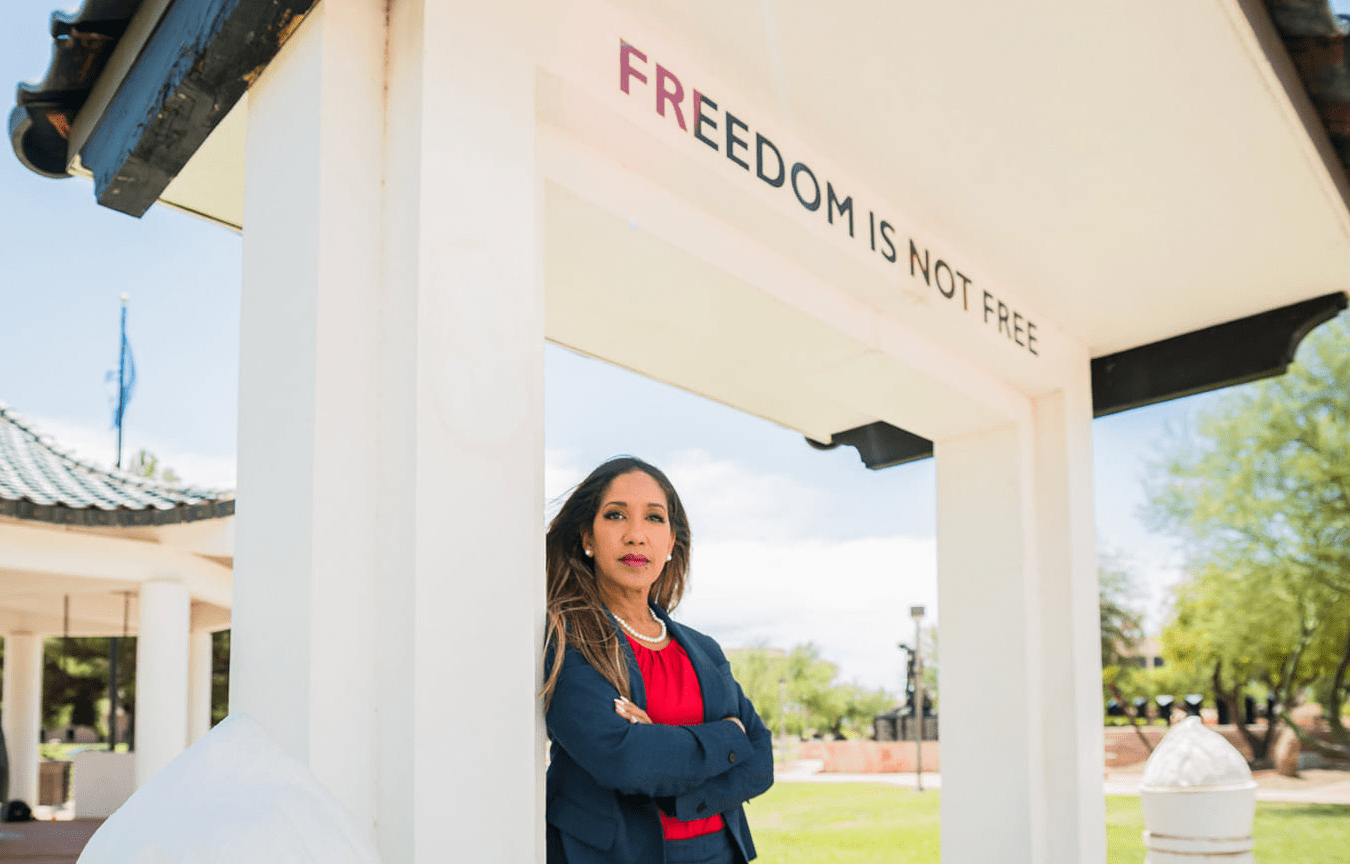

If a county attorney challenged or ignored Hobbs’ order, it would trigger a legal showdown—and the state supreme court may be the final arbiter, again. Aadika Singh, a senior attorney at the Public Rights Project, a national organization that was involved in the recent case against Arizona’s abortion ban, told Bolts this uncertainty will deter abortion care providers.
“The promises from the governor and her executive order, the attorney general’s statements, don’t help that doctor feel confident that she won’t be prosecuted by some rogue local prosecutor,” Singh said.
Such a case could emerge from Yavapai County, home to Prescott and Sedona. Republican County Attorney Daniel McGrane jumped into the recent litigation to ask the state supreme court to revive the 1864 ban and has signaled his interest in prosecuting people for abortion.
When Bolts contacted the Yavapai county attorney’s office with questions about their policies, an employee told Bolts to contact the Alliance Defending Freedom, a religious organization opposed to abortion that represented the office in court during the litigation over the 1864 ban. When Bolts clarified that it had questions about what McGrane would do in light of the court’s decision, and not just about the litigation, his executive assistant replied in an email, “I understand your request, and I have been directed to refer all inquires [sic] to the ADF.”
The Alliance Defending Freedom did not answer Bolts’ question on how they were advising the Yavapai county attorney’s office, though they did share a generic statement celebrating the court’s ruling.
Asked about the Yavapai office deferring to the Alliance Defending Freedom, Singh told Bolts, “I think it’s very troubling when governments delegate their positions, their jobs, to ideological antichoice groups.”
Singh’s organization is now fighting to get Arizona courts to delay the implementation of the 1864 ban; the attorney general said last week that the law would not be in effect until June 8 at the earliest.
In the meantime, Democratic lawmakers made some progress toward repealing the ban altogether in the Senate last week despite Republicans’ narrow majority, but the odds of repeal are even lower in the House. Speaker Ben Toma, a Republican who controls what the chamber votes on and opposes repeal, said on the floor last week, “I would ask everyone in this chamber to respect the fact that some of us believe abortion is the murder of children.”
Organizers are also championing a constitutional amendment that may end up on the ballot in November; in securing broader abortion rights in Arizona, the measure would overturn both the 1864 and 2022 bans.
“That is the most durable protection we can have here in our state,” said Chris Love, a spokesperson for Arizona for Abortion Access, the organization that’s pushing for an initiative to be voted on in November. The organization has already collected well above the required number of citizen signatures to qualify the measure, and they’re continuing to gather signatures to be safe.
Obstacles remain, however. Proponents of the measure worry, for instance, that state courts may step in and strike down the initiative even if it passes, as happened a few years back with a state ballot measure to raise taxes to boost education funding.
The composition of the state supreme court is not set in stone, though. Two of the justices who ruled to uphold the abortion ban this month, Clint Bolick and Kathryn King, are up for retention elections this fall; these races will decide whether they still sit on the bench next year to hear any challenge to the constitutional amendment if it passes.
A progressive organization on Monday launched a campaign to urge Arizonans to vote “no” on retaining Bolick and King, the Arizona Republic reported, saying it would raise money toward that goal.
Arizona voters have never ousted a supreme court justice before, and several progressive Arizonans told Bolts last week that they were still unsure of how much attention these races would get. Ortiz, the Democratic lawmaker from Maricopa County, says these judicial races could double as a referendum on abortion rights. “If voters take that power to reject these judges, they’re going to send a really strong message,” Ortiz said. “I do think that it would be a worthwhile effort.”
If the November measure protecting the right to abortion fails or is struck down, or if a court overturns Hobbs’ order preventing prosecutions, the state’s 15 county attorneys would inherit the authority to go after abortion providers within their jurisdiction. Twelve of the 15 current officeholders joined the letter opposing the governor’s executive order last year, though many have also dodged questions about whether they’d enforce the 1864 ban since the supreme court revived it.
And while all county offices will be on the ballot this year, in most places, voters will have little choice on offer: Just four counties besides Maricopa even drew multiple candidates for prosecutor—Coconino (Flagstaff), Pima (Tucson), Pinal, and Yavapai counties, all of which will be resolved in the August primaries.


In Coconino and Pima counties, all four candidates are Democrats—deputy prosecutor Ammon Barker and public defender Gary Pearlmutter in Coconino, incumbent Laura Conover and former deputy prosecutor Mike Jette in Pima—and all four told Bolts they would not prosecute abortion cases against either patients or doctors.
“The threat of prosecution will have a chilling effect on the medical administration of this state unless prosecutors in this state can give women and their medical providers clear assurance that this law will not affect them,” said Barker. Pearlmutter added that he also wants to shield “organizations who perform or assist a woman in receiving an abortion,” as well as “a family member or friend who assists a woman in transporting or obtaining an abortion.”
It’s the mirror image in the other two contested races, Pinal and Yavapai counties. Those only drew GOP candidates.
Pinal County Attorney Kent Volkmer and his primary challenger Brad Miller did not respond to Bolts’ questions. Volkmer’s office also dodged questions by the Arizona Republic. Miller is a staunch conservative who describes himself as pro-life on his website.
David Stringer, a Republican running in Yavapai County against McGrane, said he was “disappointed” in the court’s decision to uphold the 1864 abortion ban, sharply breaking from McGrane, who championed the ruling. Stringer, a former state lawmaker who resigned in 2019 over scrutiny into racist remarks, told Bolts that people should have access to an abortion “in the very early stage of pregnancy.” But he did not rule out prosecutions for abortion. “I would want to see how my colleagues in other county’s handle this very sensitive issue,” he said via email.
Stringer suggested that it may breach a prosecutor’s duty to refuse to enforce a law that’s in the books, telling Bolts, “A County Attorney is sworn to uphold the law—even laws they may not like.”
Ortiz, the Democratic lawmaker, insists that it does fall within county attorneys’ purview to refuse to prosecute abortion. She points out adultery is a crime under Arizona law and yet prosecutors aren’t going around hounding cheating spouses with criminal charges.
“Prosecutors have the full discretion to determine which cases they’re going to file charges on and which cases are going to be dismissed, and they make those decisions every single day,” Ortiz said. “It is fully within their authority to say, ‘I am not going to prosecute cases that involve abortion under this unjust law.’”
Still, abortion rights advocates also warn that this emerging patchwork of policies—with some counties open to prosecuting abortion while others are not—is insufficient to protect abortion access even in places with favorable prosecutors. What happens in one county is bound to bleed into the rest of the state, they say, which is why their priorities are amending the constitution and defending Hobbs’ statewide prohibition on enforcement.
“If a few county attorneys decide to aggressively prosecute, it could result in doctors and other providers in other counties deciding not to provide abortion services, due to the lack of statewide consistency in how reproductive health services should be provided,” said Pearlmutter, the Coconino candidate, to explain why he supports the governor’s effort to block a “fractured approach” to enforcement.
In some states led by Republican executives, the drive for statewide consistency has gone the other way. GOP officials have cracked down on prosecutors who refuse to enforce abortion bans, exposing them to heavy retaliation. In 2022, Florida Governor Ron DeSantis went so far as to remove Tampa’s elected prosecutor from his job, ostensibly over such a pledge.
Some prosecutors working under a broader ethos of criminal justice reform have also announced they won’t file criminal charges against a larger array of behaviors than just abortion—an approach known as declination. They have said these offenses are a matter for public health professionals, rather than for courts. For instance Julie Gunnigle, Democrats’ unsuccessful nominee in Maricopa County in 2020 and 2022, had pledged to not prosecute low-level drug possession and sex work.
Maricopa Democrats’ candidate this year, Wooten, did not name any type of charge besides abortion that she would decline to prosecute during an interview with Bolts, though she said she wanted to increase alternatives to incarceration for people with addiction or mental health issues in order to “address the underlying issue, as opposed to just throwing everybody in prison.”
But Wooten drew a line in the sand against enforcing a law that is about “taking constitutional rights away from women.” She invoked Rosa Parks and the civil rights movement’s legacy of civil disobedience.
“Sometimes you may have to bend the rules in order to make a greater good for America,” she said.
Sign up and stay up-to-date
Support us
Bolts is a non-profit newsroom that relies on donations, and it takes resources to produce this work. If you appreciate our value, become a monthly donor or make a contribution.


